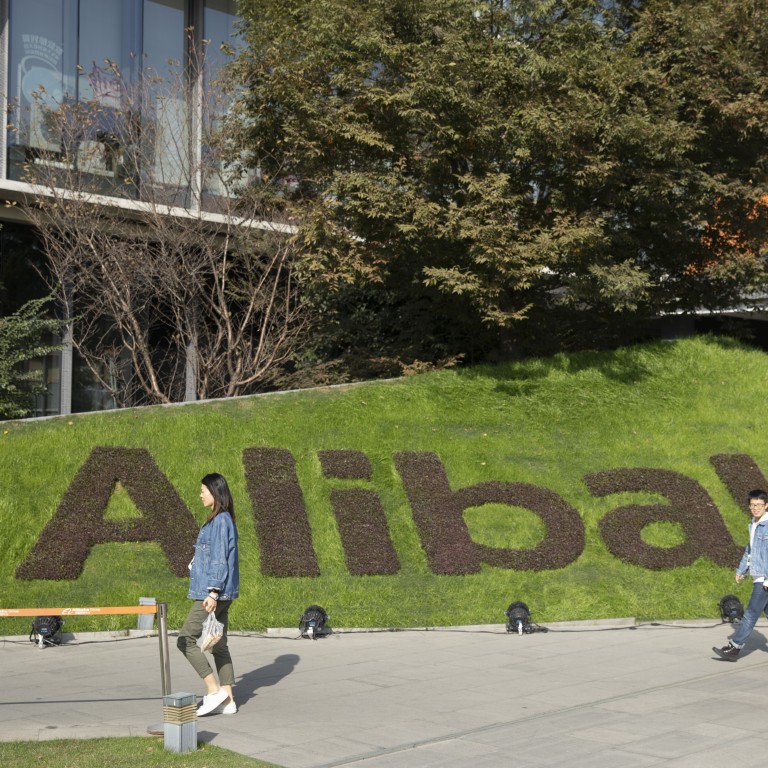
E-commerce giant Alibaba sets five-year goal of serving over a billion customers in China
- Company also aims to serve two billion customers globally, create 100 million jobs and help 10 million small businesses on its platform become profitable
- Alibaba’s net income rose 75 per cent from a year earlier to 140 billion yuan, while revenue rose 35 per cent in last financial year
Alibaba Group Holding, Asia’s largest company, outlined its goals on Friday, as it released its first annual report since a secondary listing in Hong Kong last year.
The Hangzhou-based e-commerce giant aims to serve more than a billion consumers in China and facilitate consumption worth more than 10 trillion yuan (US$1.4 trillion) through its platform in the next five years, Daniel Zhang Yong, Alibaba’s chairman and chief executive, said in a letter to shareholders.
The company, which owns the South China Morning Post, has also set the goals of serving two billion customers globally, creating 100 million jobs and helping 10 million small businesses on its platform become profitable through infrastructure support by 2036, he said.
Hong Kong stocks slip on virus worries, profit taking; Alibaba slides
Globalisation, growth in domestic consumption in China and big data supported by cloud computing will continue to be Alibaba’s three strategic pillars, said Zhang, who took over from Jack Ma, the company’s founder, in September last year. “Globalisation is our long-term battle; Chinese domestic consumption is our cornerstone battle and big data powered by cloud computing is our battle for the future,” he said.
Alibaba’s net income for the financial year ending on March 31 increased 75 per cent from a year earlier to 140 billion yuan, according to its annual result. Its revenue rose 35 per cent. Alibaba has 21 “buy” and no “hold” or “sell” recommendations among analysts tracked by Bloomberg, with a consensus 12-month share price estimate of HK$263.39.
The company has managed to achieve a goal set five years ago, of registering more than US$1 trillion in gross merchandise volumes, despite the coronavirus pandemic, which has upended businesses globally.

04:49
Alibaba Chairman Daniel Zhang on company’s IPO and global expansion during US-China trade
Alibaba’s shares dropped 2.4 per cent on Friday to HK$255.40, ending seven consecutive days of gains. They have, however, advanced 22 per cent this year, beating an 8.7 per cent decline in the Hang Seng Index.
Zhang said Alibaba has mobilised its entire digital infrastructure to contribute to the global fight against Covid-19, to meeting the essential needs of vulnerable communities and aiding in economic recovery.
The company will continue to rely on self innovation to build and develop infrastructure for a digital economy, Zhang said. “Only those who have experienced zero to one, created something from nothing, and possess the stamina to continually create value for customers through innovation, will stand the test of time in this fast-moving world of digitalisation,” he said.

